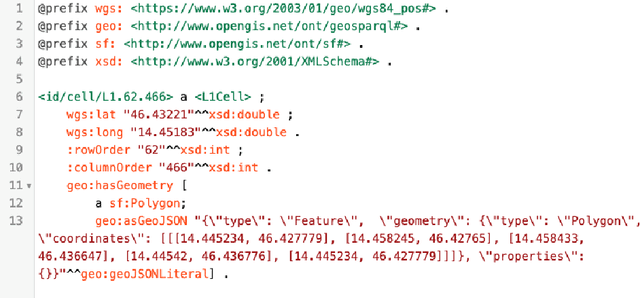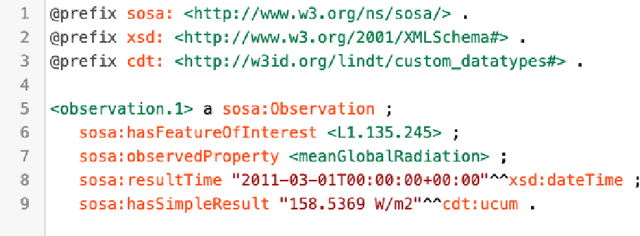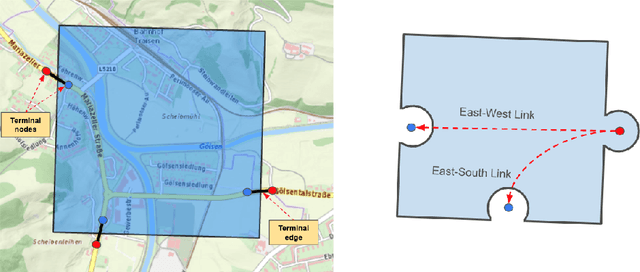Amin Anjomshoaa
Grid-Based Projection of Spatial Data into Knowledge Graphs
Nov 04, 2024



Abstract:The Spatial Knowledge Graphs (SKG) are experiencing growing adoption as a means to model real-world entities, proving especially invaluable in domains like crisis management and urban planning. Considering that RDF specifications offer limited support for effectively managing spatial information, it's common practice to include text-based serializations of geometrical features, such as polygons and lines, as string literals in knowledge graphs. Consequently, Spatial Knowledge Graphs (SKGs) often rely on geo-enabled RDF Stores capable of parsing, interpreting, and indexing such serializations. In this paper, we leverage grid cells as the foundational element of SKGs and demonstrate how efficiently the spatial characteristics of real-world entities and their attributes can be encoded within knowledge graphs. Furthermore, we introduce a novel methodology for representing street networks in knowledge graphs, diverging from the conventional practice of individually capturing each street segment. Instead, our approach is based on tessellating the street network using grid cells and creating a simplified representation that could be utilized for various routing and navigation tasks, solely relying on RDF specifications.
Blockchain as an Enabler for Transfer Learning in Smart Environments
Apr 11, 2022



Abstract:The knowledge, embodied in machine learning models for intelligent systems, is commonly associated with time-consuming and costly processes such as large-scale data collection, data labelling, network training, and fine-tuning of models. Sharing and reuse of these elaborated models between intelligent systems deployed in a different environment, which is known as transfer learning, would facilitate the adoption of services for the users and accelerates the uptake of intelligent systems in environments such as smart building and smart city applications. In this context, the communication and knowledge exchange between AI-enabled environments depend on a complicated networks of systems, system of systems, digital assets, and their chain of dependencies that hardly follows the centralized schema of traditional information systems. Rather, it requires an adaptive decentralized system architecture that is empowered by features such as data provenance, workflow transparency, and validation of process participants. In this research, we propose a decentralized and adaptive software framework based on blockchain and knowledge graph technologies that supports the knowledge exchange and interoperability between IoT-enabled environments, in a transparent and trustworthy way.
 Add to Chrome
Add to Chrome Add to Firefox
Add to Firefox Add to Edge
Add to Edge